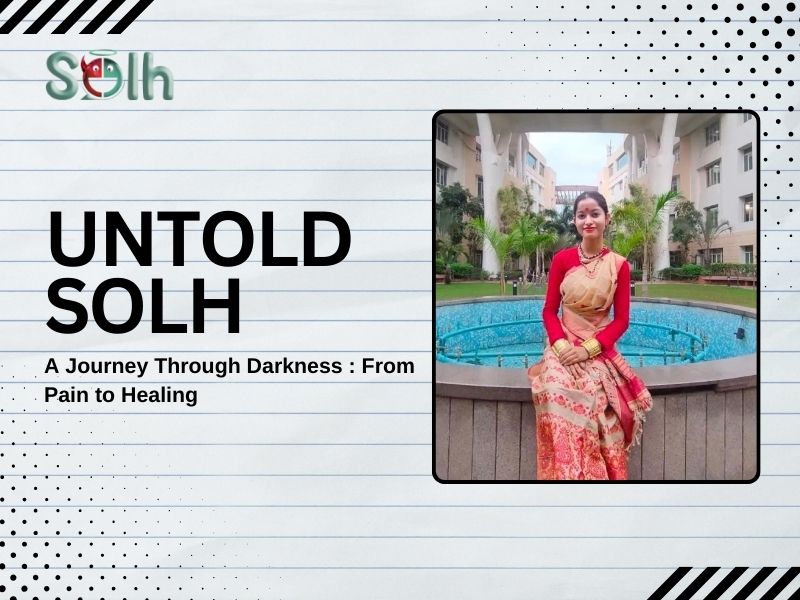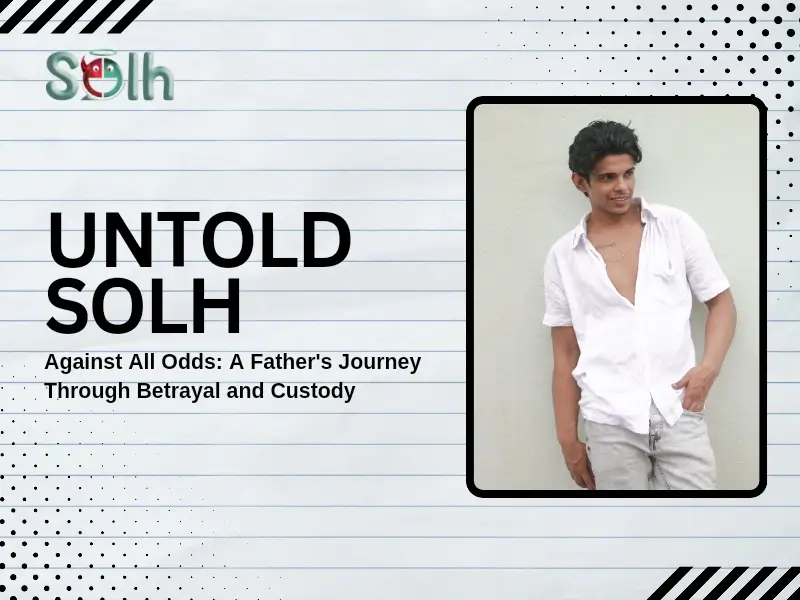As we approach Mother's Day, we want to take a moment to celebrate all the incredible mothers out there who have taken on the most rewarding and challenging role in the world.
A campaign #MomMeTime is dedicated to celebrating the inspiring journeys of mothers of children with learning disabilities. Today, we are thrilled to share the Untold Solh story of Ketki Agrawal, a mother of two children with learning disabilities.
Her journey has been full of challenges and incredible moments of joy and triumph. Her dedication to her children's education and well-being is an inspiration to all mothers out there who face similar struggles. Join us as we share Ketki's story and many more in the coming weeks.
''As the mother of two teenagers with learning disabilities and ADHD, I have been through a long journey filled with frustration, isolation, and an endless search for finding the right support for them, in society as well as educational institutions. Being a caregiver for someone with a learning disability or ADHD can be tough as nails. As a caregiver myself, I know firsthand how tough this journey can be. When my two teenagers were first diagnosed with learning disabilities and ADHD, it felt like a never-ending uphill battle.
It wasn't easy, let me tell you. The biggest challenge I faced was finding the right resources and support. In India, there's not enough awareness or resources for individuals with learning disabilities and ADHD, which makes it even harder for caregivers. So, what did I do to cope? I focused on educating myself and creating a support system for my children. Through a lot of trial and error, I finally found the right professionals who could provide my children with the support they needed.
We, as parents, are proud of the way our children are growing up. My daughter is a curious and artistic child, always eager to explore and learn new things, while my son is more reserved but is an adventurous child. He has a kind heart, and both my children have a strong affinity and love for younger children.
While they were growing up, we began to notice certain signs and symptoms that raised concerns about their development. We observed that both our children were easily distracted and struggled to pay attention. We also noticed that while our son was very hyperactive, constantly fidgeting and running around, our daughter was constantly talking and seemed to daydream a lot.
Meanwhile, at school, the teachers also noticed similar patterns of behavior in our children. They observed that my son was constantly on the move, had difficulty sitting still, and found it hard to follow instructions. My daughter, on the other hand, seemed to struggle with executive functioning, such as organizing her tasks and following through with them. My son also had difficulty with social interactions, often preferring to play alone rather than with his classmates.
That is when we decided to get a better understanding of their struggles and how we could support them. As a parent of children with learning disabilities and ADHD, I understand firsthand how challenging it can be to navigate daily life. However, over the years, I have learned several effective coping strategies that have made a big difference in our family's life.
One of the most important coping strategies we have found is to establish a routine. This has been especially helpful for our children, who thrive on predictability and structure. We have set a schedule for meals, homework, and bedtime, and we try to stick to it as closely as possible. This helps our children feel more secure and less anxious.
Visual aids have been incredibly helpful for our family. We use a calendar to mark important dates, make a to-do list for our children, and use picture schedules to help them understand what is expected of them. This has helped our children feel more organized and less overwhelmed.
We also make sure that we break tasks down into smaller steps. Large tasks can be overwhelming for children with learning disabilities and ADHD. To make things easier, we break tasks down into smaller, more manageable steps. This helps our children stay focused and motivated, and it has been a game-changer for us.
We made sure that we celebrated little successes. It can be easy to focus on the negative aspects of our children's learning disabilities and ADHD. However, we have found that it is important to celebrate their successes, no matter how small. This helps build their self-esteem and encourages them to keep trying. We make sure to acknowledge and celebrate their achievements, whether it's a good grade on a test or successfully completing a challenging task.
There are certain things I wish I had known when I started this journey. First and foremost is that as parents, we don't have to do it alone. Seeking out support from other parents of children with learning disabilities and ADHD, as well as from professionals such as doctors, therapists, and teachers, has been invaluable. They can offer advice, support, and resources that can make a big difference.
I would also like to advise new parents to read and learn as much as they can. There are resources like https://www.ldexplained.org/ that give information, especially in the Indian context. Educate yourself as much as possible about your child's learning disabilities and ADHD. The more you know, the better equipped you will be to advocate for your child and find the resources they need.
I would strongly advise new parents to advocate for their children. You should never be afraid to advocate for your child's needs. Whether it's at school, with healthcare providers, or in other areas of life, speak up and make sure your child's needs are being met. Be persistent, but also remember to be respectful and collaborative in your approach.
Finally, it's important to remember that we need to take care of ourselves as well. As a parent of children with learning disabilities and ADHD, it can be easy to neglect our own needs. However, practicing self-care is essential for our well-being. Whether it's taking a yoga class, going for a walk, or spending time with friends, we make sure to take time for activities that we enjoy.
Being a mother of children with learning disabilities and ADHD can be challenging, but it can also be incredibly rewarding. Remember that your child's learning disabilities and ADHD are just one part of who they are. Embrace their uniqueness and focus on their strengths and abilities. Help them find activities and hobbies they enjoy and encourage them to pursue their passions.
Remember that you are not alone. Educate yourself, take care of yourself, celebrate the small victories, advocate for your child, and embrace their uniqueness. With the right support and resources, your children can thrive and succeed.''
Ketki Agarwal
Founder, LDExplained
ketki@ldexplained.org
On May 31st, we'll bring all the themes together in a virtual mela, offering a range of mental health sessions to help moms prioritize their well-being. We'll have expert speakers discussing topics such as mindfulness, self-compassion, and coping with stress. We'll also offer a range of activities to promote mental health, including yoga, meditation, and journaling. The virtual mela will be an opportunity for moms to connect with each other, share their experiences, and learn new strategies for taking care of themselves.
Join us on May 31st for the Mental Health Mela -Solh Fiesta, only on Solh App.



